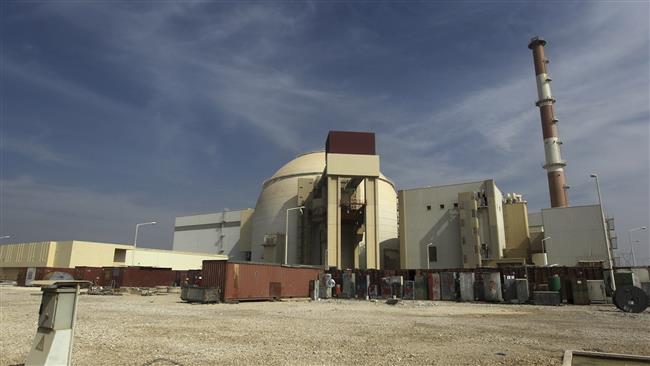A senior official at the Atomic Energy Organization of Iran (AEOI) says the country enjoys adequate potential to become one of the major countries that are capable of producing fuel for nuclear power plants, according Press T.V.
Addressing the 4th National Conference on the Application of Nuclear Technology in Agriculture in the Iranian city of Karaj on Tuesday, AEOI’s deputy director for international, legal and parliamentary affairs, BehrouzKamalvandi, said Iran has necessary knowledge, determination and resources to achieve this goal.
“Iranian officials pursue development of the country and, without a doubt, they will be able to achieve this goal, through firm determination,” the official noted, adding that the Islamic Republic is currently facing no limitation in the area of research and development.
Iran is currently among 10 countries in the world of enriching uranium
 Kamalvandi stated that Iran is currently among 10 countries in the world that are capable of enriching uranium, adding that the country has broken the monopoly that some countries had on the use of nuclear technology.
Kamalvandi stated that Iran is currently among 10 countries in the world that are capable of enriching uranium, adding that the country has broken the monopoly that some countries had on the use of nuclear technology.
“We are living in a world where sciences have been monopolized and are only made available to countries” that are in line with world powers, Kamalvandi said, adding that although the Islamic Republic is able to produce nuclear fuel, it abides by international regulations in this regard and allows no diversion in its nuclear program.
He noted that one of the principled policies of Iran, in general, and AEOI, in particular, is to safeguard the country’s nuclear achievements, especially with regard to enrichment of uranium.
Iran is currently in talks with the P5+1 group of countries – the US, the UK, France, Germany, Russia and China – to reach a final agreement over its nuclear program.
The six countries claim that there is diversion in Iran’s peaceful nuclear program toward military purposes and have imposed sanctions on Tehran on this account. Iran categorically rejects the allegation, noting that its nuclear program is totally transparent as no other member state of the International Atomic Energy Agency (IAEA) has been subject to stricter inspections by the Agency. Despite all the extensive inspections, IAEA has never found anything to denote diversion toward military purposes in Iran’s nuclear program.
The two sides clinched an interim deal on Iranian nuclear program in the Swiss city of Geneva last November, which led to relative loosening of sanctions against Tehran. They also reached a mutual understanding on April 2 in the Swiss city of Lausanne, which is considered a prelude to the achievement of a comprehensive deal before a self-designated deadline at the end of June.
R.S

